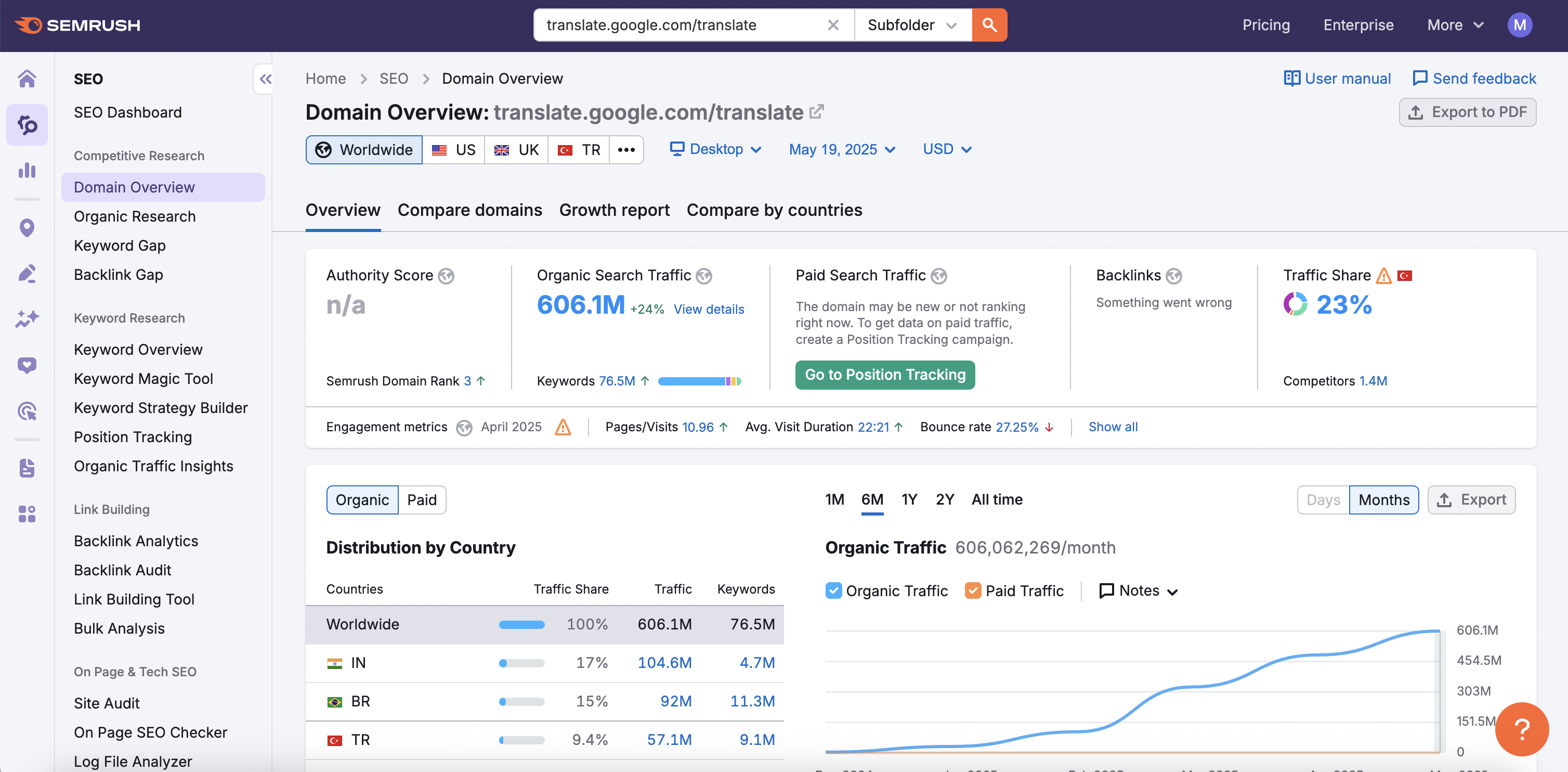Reddit Is Dead, Unseen by SEOs: Google Translate’s Proxy Pages Pull 606M Visits Monthly

While SEO professionals continue to track Reddit’s explosive growth in organic traffic (1.5B/month according to SEMrush), a quieter shift is taking place: Google Translate’s /translate subfolder has reached 606 million monthly organic visits — over one-third of Reddit’s traffic — without traditional content strategies or backlinks.
What’s fueling this?


When high-quality content in non-English languages is scarce, Google often inserts translated versions of authoritative English pages directly into the SERP, using translate.google.com/translate links. These auto-generated translations act as proxy gateways, sending traffic through Google’s own infrastructure (translate.goog), not the originating site.
Key Points:
Traffic rerouted through Google: Users still land on the translated webpage, but the request passes through Google’s Translate proxy.
SEO implication: While site owners benefit from the exposure, Google harvests behavioral data, engagement signals, and even content performance — all from its own domains.
**Unreachable via SEO tactics: ** Unlike Reddit or other UGC platforms, this traffic funnel cannot be directly optimized or influenced by SEOs — it’s algorithmically controlled and only triggered when localized content is missing OR unhelpful/weak. (This is also an opportunity to see which queries don’t provide native quality content in SERP)
This model turns Google Translate into a search experience layer, not just a tool — one that expands Google’s visibility and data collection deeper into multilingual web interactions.
Let me show you a weird example: Let’s search “Kemal Kılıçdaroğlu” in Turkey to see Turkish results -> google.com.tr

Even the politician has a Turkish Wikipedia page(very detailed) the Google shows the English one with “Translated” & proxied URL: https://translate.google.com/translate?u=https://en.wikipedia.org/wiki/Kemal_K%25C4%25B1l%25C4%25B1%25C3%25A7daro%25C4%259Flu&hl=tr&sl=en&tl=tr&client=srp
Turkish page: https://tr.wikipedia.org/wiki/Kemal_K%C4%B1l%C4%B1%C3%A7daro%C4%9Flu
WHY?
For journalists covering search and AI, this raises critical questions about neutrality, proxy visibility, and ownership of multilingual user journeys in global SERPs.
Get new research on AI search, SEO experiments, and LLM visibility delivered to your inbox.
Powered by Substack · No spam · Unsubscribe anytime
-min.png)